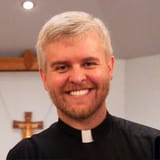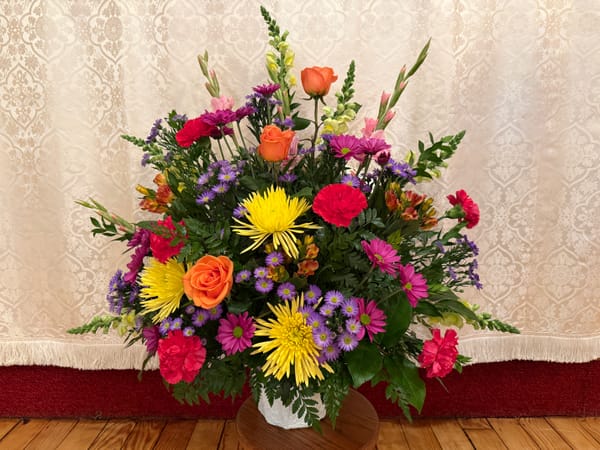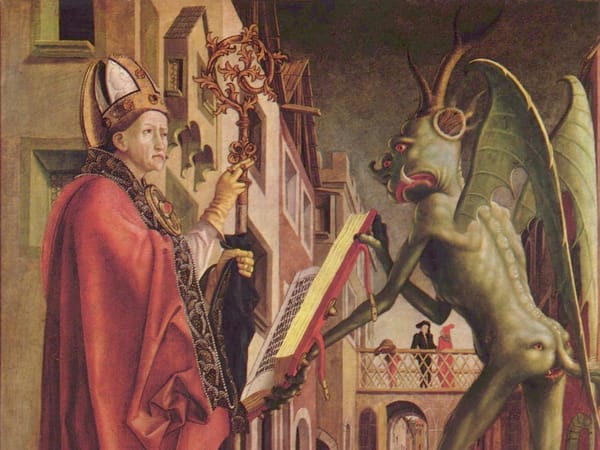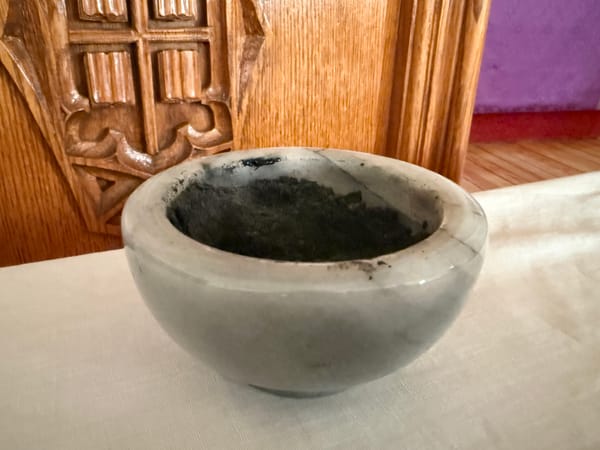Live In Your Faith, Little Flock
Having faith this morning means stepping out into our hopes, certain that God will indeed give us the kingdom when we choose to live in love.
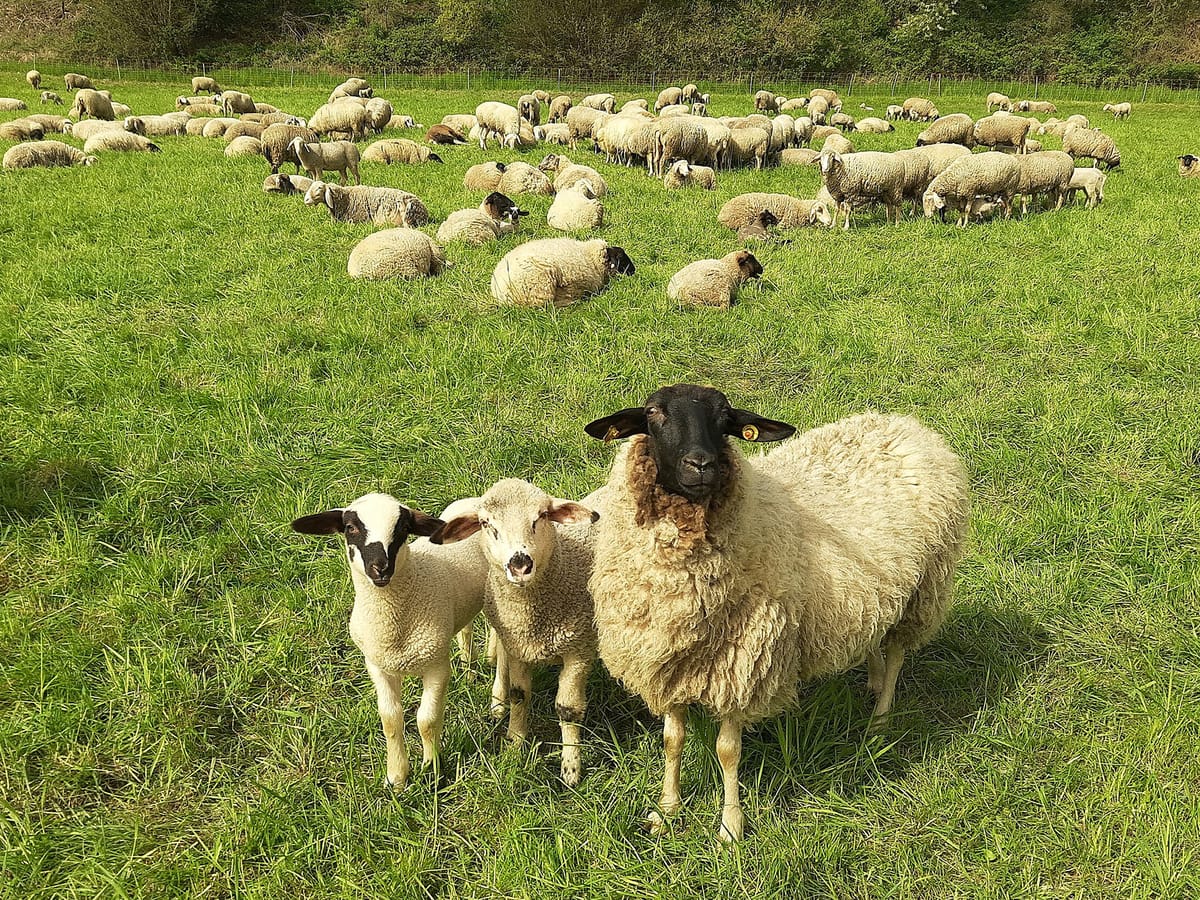
August 10, 2025 - The Ninth Sunday after Pentecost
My friends, I speak to you today in the name of one God, Father, Son, and Holy Spirit. Amen. Please be seated.
Good morning, Epiphany. Happy Blueberry Festival weekend. It has been a busy few days here in town... I saw some of you yesterday morning volunteering at the Blueberry 5k; we had a blueberry pie from Barden’s yesterday after dinner at our house. We plan on heading over to the Blueberry Market after brunch, and I’m guessing we have some blueberries waiting for you at brunch today. We are so thankful we get to live in this beautiful, blueberry-filled part of the country, especially around this time of year.
Before we dive into the story of Abraham this morning, and specifically into the “Faith Chapter” in Hebrews, Hebrews 11, I want to pull out one of the verses in the gospel we just read for a little bit of context, for a firm foundation for the rest of this morning’s sermon. It’s the first verse, Luke 12:32, “Do not be afraid, little flock, for it is your Father's good pleasure to give you the kingdom.” Do not be afraid, little flock, for it is your father’s good pleasure to give you the kingdom. This reassurance is followed immediately by a familiar but intense call to sell your possessions and give to those in need, “for where your treasure is, there your heart will be also.” That call was a theme last week too, when God called the rich man a fool for building massive storage units – I mean, bigger barns – for he could die any day.
But this verse, “do not be afraid, little flock,” well, it is a strange place to start the lectionary gospel, because the verses before it are connected, and they are wonderful and familiar too. Before this, Jesus spends ten full verses telling his disciples – and telling us today – not to worry. “Life is more than food and the body more than clothing... consider the ravens, they have no barns, but God feeds them... consider the lilies, they grow though they neither toil nor spin... do not keep worrying. Instead seek first the kingdom of God, and all these things, food, drink, your daily bread, your Father knows that you need them... they will be given to you as well.” Do not worry, Jesus tells his disciples, and now, do not be afraid, little flock, for it is your Father’s pleasure to give you the kingdom. Trust in him; everything is going to be okay.
Of all times in recent American history, at least in my lifetime, it feels like we need to read those verses, that quick speech from Jesus, on a daily basis, maybe as a way to start your daily time of prayer, if you are feeling particularly anxious. Maybe every night.
But Luke’s version doesn’t make it into the lectionary at all, so we don’t officially read that in Year C. Maybe next year with Matthew. I’m skimming over it today, briefly summarizing Christ’s call to not worry at the beginning of my sermon, because the story of Abraham and its retelling in Hebrews 11 is so significant, so foundational, to so, so many people in the world, and I want to give it a little bit of time.
As of polls from 2021, 2.3 billion people on earth identify as Christians. Another 2.1 billion people identify as Muslims, and 14.8 million people, a much smaller but still significant number, are Jewish. Those three numbers combine for 4.5 billion people, over 55% of the earth’s population, and they are, as our first reading describes them, the stars Abraham saw in the night sky. In Genesis 15, the Lord comes to Abram, who later is named Abraham, in a vision. Abram has no children, no official heir to his household, and he’s getting pretty old and worried. The Lord tells him, “Do not be afraid, Abram,” and he takes him outside to show him the stars in the sky, assuring him that his descendants will be as numerous as these, beyond counting. Today, thousands of years later, Jews, Muslims, and Christians all point back to Abraham as our spiritual ancestor, the father of our religious faith, one of those who throughout the centuries of humankind has helped show us how we interact with this omnipotent, all-powerful, mysterious, invisible, almighty God of the entire universe. 4.5 billion people on earth today, over half of humanity, and all of us here this morning, are in one way the descendants of Abraham.
Now that may mean little to you today in 2025 – who cares about this ancient guy from a patriarchal, Middle Eastern society, who died thousands of years ago, right? – but I’m going to stick with him a bit longer. Hebrews 11 helps put Abraham and his story in the proper light for us this morning. Hebrews 11 also puts Abel and Noah and Sarah and Moses and Rahab and Gideon, Samson, David, Samuel and a few others into this light, into a light that helps us to see a path forward today. We’ll read about a few of those names next week too, so I won’t get ahead of the lectionary, but Hebrews 11 is known as the “Faith Chapter” in the Bible, or by some as the “Hall of Faith.” This is where the writer of Hebrews reminds the first-century church of the communion of saints, of all those who have gone before them, believing in the goodness and the promises of God. Alan James did this a little for us here at Epiphany last week, much to his credit; none of us are here based solely on our own effort. We are standing on the shoulders of those who have remained faithful, who have continued to believe when times have been hard. And as we look around us today, we can be thankful that they did, that they kept the faith. We can look to them and to the saints and to all of our ancestors in the faith for inspiration.
For first-century Christians, these examples in Hebrews 11, particularly Abraham for us this morning, they give us a sense of what keeping the faith can do. Abram had no reason to believe this vision from God. But in faith, he obeyed and set out for a place he’d never been, not knowing where he was going. He stayed in a foreign land, in tents; he “received the power of procreation,” as the NRSV delicately puts it, even though he was too old, and his wife Sarah had a son. He offered that son, Isaac, back to God on an altar, his faith was so strong, and God spared him, providing a ram as an offering instead. Over and over, the “hall of faithers” in Hebrews 11 believed in what they could not see or fully understand, and they stepped out in faith. It was “reckoned to them as righteousness.”
Now, faith is a tricky thing in the modern world, I will admit. Especially for those of us who have respect for science, history, sociology, psychology, and education in general. We struggle with the unseen, with the mystical, the spiritual; we struggle with the sense that there might be something unexplainable, unscientific out there. We are the wisest and most intelligent humans that have ever lived on this planet, right? Or so we think... that might be difficult to claim given some of the problems in the world these days.
But according to Hebrews 11, faith is “the assurance of things hoped for, the conviction of things not seen” as we have it in the NRSV this morning. We have example after example of this sort of faith in our tradition, in our texts. I learned this definition in the NIV as a kid: “faith is being sure of what we hope for and certain of what we do not see.”
So, this morning, what do we hope for, here at the Church of the Epiphany? What are we certain of, in America, in 2025? If faith is being sure of what we hope for... what do you hope for? ...If faith is being certain of what we do not see, what are you certain of?
I can tell you a few things I hope for, a few things I’m certain of this morning, if that might help. I am sure that the love we see and have in Jesus Christ changes everything. Love changes people, it changes our broken relationships, it changes societies as a whole, one bit at a time. I am sure of that, and so were countless people who have changed this country and this world for the better. I hope that love lived out radically, with reckless abandon, across all barriers, will solve some of the big problems facing today’s world. It has done so before and I hope that it will do it again. I am also certain, sadly, that fear of the other is being used by those in power on all sides of the political spectrums across this world to amass untold amounts of wealth and possessions, not treasures in heaven. But I am certain that the antidote to that fear is love. I am certain of that. And personally as your priest (I hope you would expect this), I hope that the church, the Episcopal Church and this church in particular, can more and more become a place of redemption and resurrection, of abundant love and life-changing welcome, a small spark that can light a blazing fire, a glimpse into the revolutionary and beautiful kingdom of God. I am certain that God has a better world waiting for us, if we are brave enough to live into it, and I deeply hope that we choose to do so.
Having faith this morning, being sure of what we hope for and certain of what we do not see... having faith like Abraham, that led him into the unknown and eventually to being the spiritual father of half the world... having faith like all those in Hebrews 11, having faith like Jesus calls his disciples to have in this morning’s Gospel... having faith this morning means stepping out into our hopes, being so sure of them that we can live into them, certain that God will indeed give us all the kingdom, to God’s own good pleasure, when we choose to live in love.
Do not be afraid, little flock. Live confidently in your hopes and your certainties. Live in the love that you see on display here in this place. Live out the love you have been given and shown by the God of the universe in Jesus Christ. Live in your faith, by the Holy Spirit, and without fear.
Amen.
